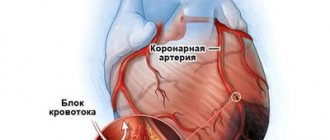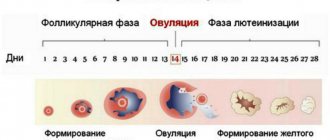15.06.2018
Increased salivation in an adult is a symptom of inflammation or disease of the gums, teeth or internal organs. It is important not only to eliminate excessive salivation, but also to correctly determine its cause, otherwise the recovery will be temporary.
Salivation is considered normal if the volume of saliva does not exceed two liters per day. It is involved in digestion, washing away pieces of food, remnants of drinks and bacterial activity from the teeth. Normally, the process of salivation is invisible to humans - we do not pay attention to it, like, for example, breathing. But if a failure occurs, then too much saliva causes discomfort.
With this disease, saliva accumulates in the mouth too quickly; you constantly have to make sure that it does not leak out and spit. It is inconvenient, unaesthetic, spoils the mood and causes discomfort. In the article we tell you what are the causes of increased salivation in men and women and how to treat it.
A lot of saliva in the mouth - how much?
Various glands are responsible for the secretion of saliva in the mouth: submandibular, sublingual, parotid, lingual, palatine. Also, a small amount of secretion is secreted by glands located on the inside of the cheeks and lips. Experts say that the norm is when the salivary glands secrete about 2 milliliters of liquid in 5 minutes, and about 2.5 liters per day. If there is more secretion, then this condition obliges the person to go for examination to doctors to make sure that the causes of this phenomenon are completely harmless.
On average, a person produces about 2.5 liters of saliva per day.
When there is a lot of saliva in the mouth, doctors scientifically call this phenomenon hypersalivation, sialorrhea or ptyalism. Pathology can be true or false. In the second case, the required volume of liquid is released, but the person has difficulty swallowing, because... the functioning of the muscles responsible for this process is impaired, so there is a feeling that there is too much saliva in the mouth.
Now let's look at the main reasons why there may be a lot of saliva in the mouth. Remember that most of them are a reason to see a doctor for treatment.
Functions of saliva
Saliva is one of the most important components of the digestive system. It is practically colorless and odorless, but has a slightly sour taste. Its production involves the salivary glands located around the jaw. One of the main functions of saliva is the initial digestion of food by softening it during chewing in the mouth before swallowing.
Saliva contains the enzyme amylase, which takes part in the breakdown of starch into simple sugars. Saliva also provides additional disinfection of food and enhances its taste. The autonomic nervous system is responsible for the production of salivary fluid, and the smell and taste of food is responsible for stimulating secretory function.
Salivation has a complex reflex nature
Oral diseases
If a lot of saliva is produced, doctors first advise looking for reasons in the condition of the oral cavity, and this is not without reason. Most often, hypersalivation is associated with stomatitis, gingivitis, glossitis, sialadenitis. If the disease is not treated, bacteria living in the mouth can lead to inflammation of the salivary gland or mumps.
The cause of the pathology may be inflammation of the salivary glands
During teething, children produce a lot of saliva because... blood circulation in the mucous membrane increases, nerve endings are stimulated and irritated, but this condition cannot be considered pathological. Hypersecretion of the glands will disappear soon after the teeth emerge. Otherwise, you should consult a doctor.
Diagnostics
Initially, with complaints of increased salivation, the patient should contact a therapist or pediatrician. If necessary, other highly specialized specialists are involved in the diagnostic search: neurologist, phlebologist, cardiologist, endocrinologist, infectious disease specialist, oncologist, gastroenterologist, dentist.
The survey usually involves the following steps:
- External examination, finding out in a conversation with the patient or his relatives about the time of the problem, the presence of concomitant diseases, and other signs of the disease.
- Exclusion of other pathologies, the symptom of which may be hypersalivation. In children, it is important to distinguish ptyalism, as a symptom of teething, from ARVI.
- Identifying signs confirming the disease. For this purpose, laboratory blood tests, functional tests, and bacteriological seeding of biological material are carried out.
- Hardware diagnostic methods include X-ray, computed tomography, magnetic resonance imaging, ultrasound scanning of the affected organ, electroencephalography of the heart, and Doppler ultrasound of blood vessels.
- Additional examination by a dentist, psychiatrist and neurologist to identify possible indirect causes.
Availability of prostheses and other structures
If you have just recently installed dentures or, for example, braces, this may explain why there is a lot of saliva in your mouth. It’s just that the sensitive mucous membrane is not yet accustomed to finding a foreign object. Constantly in contact with him, she becomes irritated, which leads to increased secretion production. After the adaptation period (after about 2-3 weeks), the situation should normalize.
The presence of orthodontic structures in the mouth can cause increased salivation
Most often, patients who wear removable dentures complain about the problem. Many of them fail to get used to the structures even after months of use, because the dentures are not securely held in place, can move, constantly rub the mucous membrane, and put pressure. In general, they have a mechanical effect on sensitive receptors in every possible way.
“I understood why I had a lot of drool in my mouth almost immediately, because shortly before that I had to have my teeth removed due to a serious illness. The problem really bothered me at night: at first I couldn’t fall asleep for a long time, and in the morning the entire pillow and blanket around my chin were wet. And this is understandable, there was nothing to retain the liquid, it flowed out freely while you were sleeping relaxed. During the day he wore removable dentures, and at night he took them off, because... it was even more uncomfortable than without them. Now I’ve installed dentures on implants, and, thank God, I forgot about the problem, like a bad dream.”
Nikolaev K., review from the dental portal gidpozubam.ru
Increased salivation in children
In newborn babies, salivation is normally absent due to the underdevelopment of the salivary gland apparatus. However, often a mother may notice how, in the first hours of a child’s life, a colorless liquid, very similar to saliva, is actively secreted from his mouth.
Most often, this is how amniotic fluid comes out, which the baby managed to swallow while passing through the birth canal. Normally, this phenomenon should stop a few hours after birth. If drooling continues longer, it is better to inform your pediatrician (neonatologist) about this in order to exclude serious health problems.
Note: In general, in the first year of life, increased salivation in a child is a normal process.
At the age of about 2 months, a baby may experience profuse salivation, caused by the fact that the salivary glands finally begin to work at full capacity. It is at this age that a child may need his first bib to protect his clothes from getting wet.
Active salivation begins at 2 months of age
Closer to 3 months, children become active explorers of the world around them and taste everything. They put fingers, toys and any other objects at hand into their mouths.
The baby's body becomes acquainted with new microflora, which leads to increased secretion of saliva, which performs a protective function when various bacteria are removed from the oral cavity along with the fluid flowing out of the mouth.
The next time hypersalivation may bother the child during teething, closer to 6 months, and lasts up to 2 years. It is important to note that older children should not suffer from hypersalivation.
If a problem does exist, this may indicate certain disorders, for example, diseases of the nervous system, brain injury, worms, which is why it is extremely important to consult a specialist.
Trigeminal neuralgia
Experts say that hypersalivation is a sign that always indicates irritation or excitation of one of the branches of the trigeminal nerve. This simply happens for various reasons: due to mechanical injuries, internal diseases of the body, paralysis, rare neurological pathologies (for example, lateral sclerosis), brain tumors or cerebrovascular accidents, migraines. And even due to increased blood pressure.
With inflammation of the ternary nerve, this symptom also appears
“My mother recently suffered a stroke, after which a lot of saliva began to accumulate in her mouth, and it even poured out, but the doctor said that this is a normal condition after such an illness, and has nothing to do with hypersalivation. It’s just that her muscles and swallowing reflexes have weakened, and she has difficulty swallowing food...”
Olga, review from the woman.ru forum
Chronic gastrointestinal diseases
Why is there a lot of drool in my mouth? The reasons may lie in diseases of the stomach and pancreas. In particular, this phenomenon is common in chronic gastritis and pancreatitis, ulcers, as well as reflux, when the contents of the stomach are thrown back into the esophagus. In these diseases, doctors consider hypersalivation dangerous, because swallowing a lot of saliva, a person causes increased production of pancreatic enzymes, and their excess leads to its self-destruction.
Gastrointestinal diseases can also lead to the problem
Saliva is produced in large quantities if a person has serious liver diseases such as cirrhosis and hepatitis.
Hormonal changes or disruption
If there is a lot of saliva in the mouth of teenagers, then the reasons may be associated with changes in hormonal levels. Hypersalivation also occurs in women, for example, during menopause or during pregnancy. True, during pregnancy it is often provoked not only by hormonal imbalance, but also by toxicosis, as well as heartburn.
Pregnancy causes hormonal changes
Hormonal imbalance can also be associated with serious diseases: thyroid dysfunction, diabetes mellitus.
Hypersalivation as a sign of another disease
Hypersalivation often develops secondary, against the background of another disease. If a woman feels pain in the throat, it is necessary to examine it for signs of tonsillitis
.
During the first day of the disease, the temperature may not rise, but dry mucous membranes appear, weakness and slight swelling of the tissues occur. On days 2-3, the throat turns red, and drooling may persist throughout the course of the pathology.
With disorders of the thyroid gland and some neurological pathologies, saliva flows from the mouth during a conversation. When the underlying disease is corrected, this symptom usually disappears. Digestive disorders almost always occur with moderate or increased hypersalivation
. Additional signs include heartburn, abdominal pain, and loss of appetite.
Infectious processes in the oral cavity can increase drooling
. In this case, hyperthermia is often observed, as well as signs of intoxication, which indicate the active reproduction of pathogens and the release of toxins.
If salivation is increased, you need to look for the causes of the disorder. This is the only way to solve this problem and avoid relapses.
Nutritional Features
The reasons for increased work of the salivary glands should not always be sought in pathological conditions and internal diseases of the body. Sometimes excessive secretion can be caused by irritation of our taste buds with salty, spicy or sour foods. If such dishes are present in your diet, then try to reconsider your diet. This is important to do not only to normalize the functioning of the glands, but also for the overall health of the oral cavity. After all, such food can cause irritation of the mucous membrane and lead to the appearance of non-carious lesions of the teeth, for example, erosions.
Acidic foods cause increased salivation
Food allergies and severe hunger can cause hypersalivation.
“In fact, there can be many reasons for increased saliva production. This may be due to the most harmless problems (poor diet and taking certain medications), or caused by serious diseases and disorders: encephalitis, Parkinson's and Alzheimer's disease, schizophrenia, cerebral palsy, rabies. If the symptom manifests itself for a long time and bothers you at night, then there is no need to self-medicate. You need to see a doctor. As a rule, the following specialists help cure pathology, depending on its specificity: dentist, therapist, endocrinologist, gastroenterologist or neurologist,” says O.V. Komarova, general practitioner.
Complications and prevention
The consequences of ignoring such a symptom can be:
Symptoms of salivary gland disease
- violation of adequate taste perception, food aversion;
- sudden weight loss;
- dehydration of the body;
- psycho-emotional disorders, insomnia;
- deterioration of the condition and color of the skin due to the constant influence of saliva and the bacteria in it;
- infectious lesions.
In order to prevent pathologies that provoke increased salivation, it is recommended to follow the following rules:
- perform hygiene procedures in a timely manner, including the oral cavity;
- once every six months, undergo a preventive examination at the dentist, have your teeth professionally cleaned;
- review your diet, use more fresh vegetables and fruits to enrich the body with vitamins and microelements (you should give up salty, smoked and fatty foods);
- lead an active lifestyle, relax in nature, visit fitness centers;
- to refuse from bad habits.
If excessive salivation is a symptom of any disease, you need to undergo medication prescribed by your doctor. Eliminating the problem in this case depends on complete recovery.
A healthy lifestyle is an excellent prevention of increased salivation
Summary table of the causes of hypersalivation
| What is the problem | Diseases and conditions | Which doctor prescribes treatment |
| Oral cavity | Stomatitis, sialadenitis, gingivitis, glossitis, malocclusion, adentia, wearing uncomfortable dentures | Dentist |
| Gastrointestinal tract | Gastritis, ulcer, pancreatitis, narrowing of the esophagus, helminthic infestations | Gastroenterologist |
| central nervous system | Stroke, paralysis, damage to the trigeminal nerve, psychoses and neuroses, schizophrenia, Parkinson's disease, rabies, hypertonicity of the cervical muscles | Neurologist |
| Liver | Cirrhosis, hepatitis | Gastroenterologist or hepatologist |
| Kidneys | Uremia | Nephrologist |
| Throat, nose | ARVI, acute respiratory infections, sore throat, laryngitis, pharyngitis | Therapist, ENT |
| Thyroid | Diabetes | Endocrinologist |
With the pathologies listed above, hypersalivation will appear on an ongoing basis until you get rid of the disease that caused it. If the cause of increased saliva production is poisoning of the body (iodine, bromine, copper), allergies to foods, or taking certain medications, then the symptom quickly goes away after eliminating the irritating factors and adequate therapy. For example, taking enterosorbents and antiallergic medications.
Causes of increased salivation in adults
Hypersalivation in adults is most often a pathology caused by a number of diseases. Moreover, it occurs with equal frequency in both men and women. Increased salivation always accompanies infectious and inflammatory diseases of the oral cavity and pharynx - stomatitis, gingivitis, periodontitis, sore throat, acute respiratory viral infections.
Stomatitis is an inflammatory disease of the oral mucosa. As a rule, with this disease, the entire oral mucosa is covered with painful ulcers. As a result, it becomes painful to swallow, so the person stops swallowing the resulting saliva.
Gingivitis is no exception, leading to hypersalivation. This disease is characterized by inflammation of the gums. Whether with stomatitis or gingivitis, increased salivation is a protective function in diseases of the oral cavity, allowing timely removal of infectious agents, their toxins and tissue decay products.
This is also why excessive salivation is a sign of an incipient cold. Strong salivation in this case develops in response to mechanical irritation of the nerve endings of the oral cavity.
Disruption of digestive processes. Increased acidity of gastric juice, inflammation and irritation of its mucous membrane can cause a reflex increase in salivation and constant moderate hypersalivation.
With such diseases, increased salivation develops gradually and the patient gets used to the increased amount of saliva, not paying attention to the inconveniences associated with this condition. From the gastrointestinal tract, microorganisms can easily enter the oral cavity, where they irritate the salivary glands and gums and provoke the gradual development of hypersalivation.
Since it develops slowly, a person does not notice excess saliva production. An accurate diagnosis can only be made after fibrogastroduodenoscopy, because the symptoms of these diseases are similar.
With an ulcer, salivation is accompanied by pain and nausea, and most often this occurs on an empty stomach; with gastritis, heaviness and pain appear immediately after eating. Duodenitis leads to the same symptoms, but 1-2 hours after eating. Also, increased salivation in men and women can be observed in acute pancreatitis, caused by excessive production of enzymes by the pancreas.
If bitter belching is added, especially in the morning, the liver and gall bladder should be checked. Saliva can also accumulate in the mouth when there is esophageal spasm, scarring, or tumors that make swallowing difficult.
Involuntary secretion of saliva occurs with facial paralysis (this can also be a symptom after a stroke); in this case, the person cannot swallow at all, even liquid food. Paralysis of the muscular system in the maxillofacial area is a consequence of damage to the facial nerve.
Pathologies of the nervous system. Hypersalivation can also be caused by diseases associated with the central nervous system. Such pathologies include cerebral palsy, Parkinson's disease and its initial stage, irritation of the trigeminal nerve, as well as ailments that cause frequent nausea, such as migraines.
Patients may have problems with swallowing and nasal breathing that are not under their control. Often such patients complain of salivation when talking, which interferes with normal communication with others. A similar situation arises against the background of malfunctions of the vestibular apparatus.
FGDS helps to understand the causes of increased salivation
The main symptom of pseudobulbar or bulbar syndromes. This disease is characterized by damage to the cerebral cortex. As a rule, the amount of saliva produced directly depends on the severity of the disease. With poliomyelitis, syringobulbia or vascular pathologies, patients also experience hypersalivation.
Disorders of the thyroid gland. When the hormonal balance is disrupted, all functions of the organs and systems of the body are disrupted. The symptom can be triggered by diabetes mellitus or hormonal changes - during menopause or puberty.
Chemical poisoning, long-term use of potent medications. The symptom is often caused by long-term drug therapy with potent drugs. The most common drugs that have this effect are nitrazepam, pilocarpine, muscarine, physostigmine and lithium. After stopping the course, the secretion of the salivary glands returns to normal.
Note: It happens that the cause of all troubles is poisoning with iodine, mercury or pesticides.
Causes of hypersalivation in men
Increased salivation in men can be caused by all of the reasons listed above, but there is one more factor. As a rule, men are more likely than women to abuse bad habits, among which smoking and drinking alcohol are the leading ones. Inhaling smoke containing nicotine and tar has a negative impact on the condition of the oral cavity.
The mucous membrane is constantly injured. To reduce irritation, the salivary glands reflexively begin to produce more fluid - this increases the amount of saliva produced. Because of this, hypersalivation is especially common among smokers. If a person quits smoking, then salivation, after a certain time, returns to normal.
Why do women salivate?
For many women, the cause of hypersalivation is pregnancy, or more precisely, the resulting toxicosis. According to experts, it is in the early stages of pregnancy that many women notice primary signs of hypersalivation.
Increased salivation may accompany early toxicosis of pregnancy
The thing is that a woman is constantly trying to suppress attacks of nausea and vomiting, thereby she begins to involuntarily swallow less often. As a result, there is a feeling that there is actually more saliva than there should be. Heartburn often accompanies increased salivation during pregnancy.
In this case, the body conditionally receives a signal to soften the acid with saliva, which, due to its high bicarbonate content, is classified as an alkaline environment. Sometimes hypersalivation occurs due to the same factors as in ordinary adults. In such a situation, pregnant women are advised to inform their doctor about this to rule out obvious causes of the problem.
Another reason for increased salivation in women is the onset of menopause. In this case, it is accompanied by severe sweating and frequent flushes of blood. This is a natural process that will gradually disappear.
Methods of combating pathology
If you are thinking about how to get rid of increased salivation, then you need to understand that there is no single treatment plan for all patients with this problem. After all, pathology is caused by various reasons and diseases.
However, there are methods by which doctors suppress excess saliva production. They are used to eliminate an unpleasant symptom and always in complex therapy aimed at treating the underlying disease that caused hypersalivation:
- taking enterosorbents: for example, activated carbon or polysorb,
- medicines: we intend not to list their names, because... drugs have a list of contraindications for use and side effects. They should only be prescribed by a doctor, in fact, like other treatment methods, based on the specific cause of the pathology,
- courses of facial massage and exercise therapy, articulation gymnastics: these measures are quite often prescribed for children,
- botulinum toxin injections1: block the activity of the glands for a short time (6-8 months),
- cryotherapy.
Only specialists can prescribe drug treatment for pathology.
When conservative therapy does not produce positive dynamics, doctors resort to surgery and selectively remove the salivary glands. However, such a measure is the exception rather than the rule, because it carries certain risks, such as damage to the facial nerve.
To quickly stop bothering you with an unpleasant symptom, you also need to follow a diet. It is necessary to exclude acidic foods and starchy foods, bread, potatoes and pasta from the diet. You can rinse after meals with a decoction of chamomile and oak bark, or a decoction of viburnum berries.
Notice
: Undefined variable: post_id in
/home/c/ch75405/public_html/wp-content/themes/UltraSmile/single-item.php
on line
45 Notice
: Undefined variable: full in
/home/c/ch75405/public_html/wp-content /themes/UltraSmile/single-item.php
on line
46
Rate this article:
( 20 ratings, average: 4.25 out of 5)
prevention
- Rakhmatullina E.F. Botulinum toxin type A in the treatment of autonomic disorders. Practical medicine, 2013.
Treatment of hypersalivation
There is no single treatment method for all cases. However, you can use methods to reduce the activity of the salivary glands - sometimes they are recommended by doctors as an addition to complex therapy.
- Reception of sorbents: activated carbon, polysorb, etc.
- Taking medications prescribed by a doctor.
- Exercise therapy, massage (most often prescribed for children).
- Botulinum toxin injections.
In rare exceptions, the salivary glands are partially removed, but the downside is that there is a risk of damaging the facial nerve.
Which doctors will help you cope with this disease? Dentist, gastroenterologist, endocrinologist, neurologist, infectious disease specialist, etc.
Comments
The child is drooling from his mouth, although he is already 4 years old and all his teeth have long come out. What could cause such hypersalivation?
Galina (01/19/2020 at 11:05) Reply to comment
- Dear Galina! Pay attention to exactly when your baby drools. Some children suffer from this problem when they are engrossed in some interesting game or cartoon. If this is so, then, most likely, the child simply does not yet know how to control his reflexes and does not draw in saliva in time. In this case, we are not talking about hypersalivation as a pathological process. You just need to teach your baby to swallow saliva and pay attention to it. If drooling occurs regardless of the child’s condition and behavior, or time of day, then it is recommended to contact a pediatrician to be examined.
Editorial staff of the portal UltraSmile.ru (01/23/2020 at 09:26) Reply to comment









